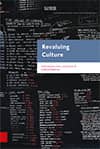There has been heated and highly polarised debate in the cultural sector in recent years, focusing primarily on the level and distribution of government grants. Some calm now seems to have returned to the debate.
Principles under discussion
Nevertheless, there is a widely shared need for a substantive debate about the role, social significance, and direction of cultural policy. The Dutch minister of Education, Culture and Science also wishes to encourage such a debate. A number of traditional policy principles are under discussion, partly due to the impact of (social) changes and technological developments. These include the technological reproducibility of cultural expressions, the changing relationships between the private and public domains, the blurring of the boundaries between producers and consumers of culture, and the increased attention for the economic significance of culture thanks to the rise of the creative economy and the growth of the culture industry. Finally, the composition of the (potential) audience has changed in recent decades due to shifts in educational level and prosperity, and the changing interest in various types of cultural expression.
Inject scientific knowledge
The situation in the Netherlands is by no means unique, and neighbouring countries are also actively considering and debating the significance of such trends for cultural policy. In some countries, this has in fact led to policy changes.
With this study, the Council wishes to inject scientific knowledge into the Dutch debate. The key questions in the project are:
- What developments have taken place in recent decades in the cultural landscape?
- How have neighbouring countries dealt with them?
- What can the Dutch government learn from this?
Publication
On 27 October the WRR released ‘Revaluing culture’, an essay based on Cultuur herwaarderen published in March 2015.

Image: © WRR
Across Europe, policymakers regularly question the value of culture and, increasingly, seek the answer in culture’s social and economic impact. As a result of this the culture sector often is expected to meet new aims. In this essay the WRR argues that cultural policy should be first and foremost directed towards the ‘culture’ part of cultural policy.
